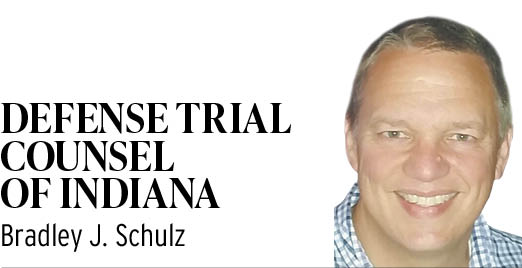Subscriber Benefit
As a subscriber you can listen to articles at work, in the car, or while you work out. Subscribe Now We live in an era where the premium on approval is at an all-time high. We want “likes” on our social media and the accolades of our colleagues. Yet the practice of law and the zealous representation of clients demand that we, at times, take unpopular positions and make difficult decisions. This can cause considerable angst and sleepless nights.
We live in an era where the premium on approval is at an all-time high. We want “likes” on our social media and the accolades of our colleagues. Yet the practice of law and the zealous representation of clients demand that we, at times, take unpopular positions and make difficult decisions. This can cause considerable angst and sleepless nights.
This is nothing new in the annals of law. Even a casual search of history reveals times when lawyers, whether they were practicing law or not, took an unpopular position because their ethical and legal duties called them to do so. The ultimate results of these decisions serve as examples of how difficult or unpopular decisions can build character and ultimately make us better attorneys.
Floyd J. Mattice
Practicing much of his 50-year legal career in Indiana, Floyd Mattice served as a prosecutor and as the city attorney for Indianapolis. His most prominent legal service came immediately after World War II, when he served as the American associate counsel with the International Military Tribunal for the Far East (essentially the Pacific Theater’s version of the Nuremberg trials). Mattice defended accused war criminals Seishiro Itagaki and Iwane Matsui before the tribunal, with Itagaki noting Mattice’s professionalism and effectiveness. Defending accused war criminals did not win popularity contests in a post-war environment, where the phrase “Remember Pearl Harbor” still resonated. Mattice used the lessons of his service in continuing his legal career with the Department of Justice.
Gavin McNab
To 1920s audiences, the trial of the century was probably the criminal prosecution of movie star Roscoe “Fatty” Arbuckle for the alleged murder of a young actress. A sizable portion of the public assumed Arbuckle’s guilt, especially considering the sordid details of alleged events. San Francisco attorney Gavin McNab was Arbuckle’s lead counsel, defending Arbuckle in three jury trials against the allegations. McNab honed his defense over the first two trials despite having a sizable number of his countrymen dislike him because his client must be guilty. The jury in the third trial apparently liked McNab as they delivered an acquittal after five minutes of deliberation, taking most of that time to author a statement saying, “Acquittal is not enough for Roscoe Arbuckle. We feel a great injustice has been done to him.”
Mabel Walker Willebrandt
Upon ratification of the 18th Amendment making prohibition the law of the land, Congress passed the Volstead Act to enforce the Amendment. The Volstead Act called for strict enforcement, with the Department of Justice charged with prosecuting violations of the act. Privately, DOJ attorney Mabel Walker Willebrandt questioned the wisdom of prohibition. Publicly, Willebrandt was its greatest champion, pursuing distillers and bootleggers with such vigor that she earned the nickname “Prohibition’s Portia.” Americans either admired her as the country’s most famous law enforcement officer or despised her as an enemy of personal freedoms. The repeal of the 18th Amendment did her no real harm as she moved to the West Coast and represented “golden age” Hollywood celebrities like Jean Harlow.
Gerald R. Ford
A graduate of the University of Michigan and Yale Law School, Gerald Ford’s approval rating stood at 71% when he assumed the presidency following Richard Nixon’s resignation after the Watergate scandal. Ford’s most significant immediate problem was how to handle the potential criminal prosecution of the former president. Ford issued a full pardon to Nixon in hopes of getting Nixon behind the country so it could address pressing economic issues. Ford lost the 1976 election, with many pundits pointing to the Nixon pardon as the key reason for Ford’s loss. History has been kinder to President Ford, noting that his unpopular decision was the right thing to do. The John F. Kennedy Presidential Library awarded President Ford its Profile in Courage Award in 2001. Sen. Edward Kennedy, speaking at the award ceremony, stated that the “courage and dedication” of Ford’s decision “made it possible for us to begin the process of healing and put the tragedy of Watergate behind us.”
Many of our problems and decisions may not make the headlines, but they can serve to develop courage, determination and the humility to place the right decision above our own selfish desires.•
__________
Bradley J. Schulz is an attorney with State Farm Claim Litigation Counsel in Indianapolis and serves on the board of directors of DTCI. Opinions expressed are those of the author.
Please enable JavaScript to view this content.
